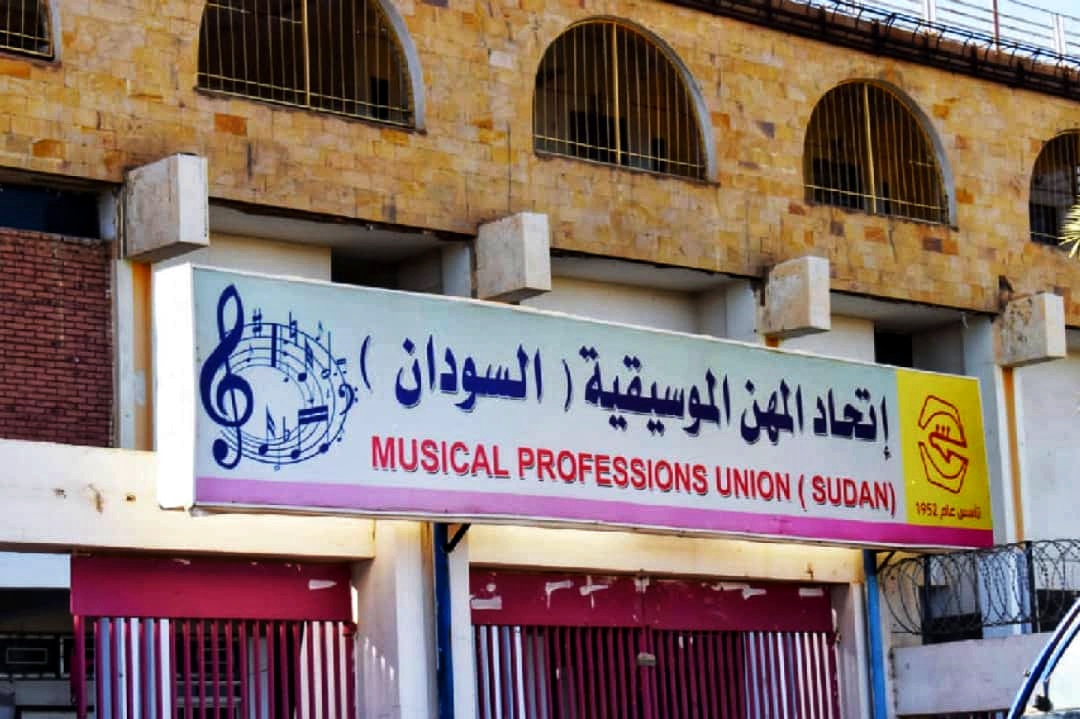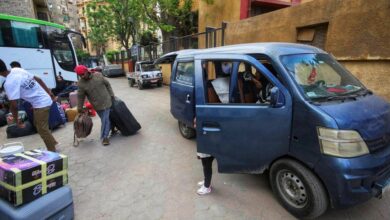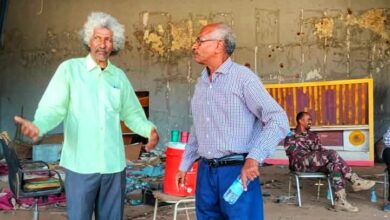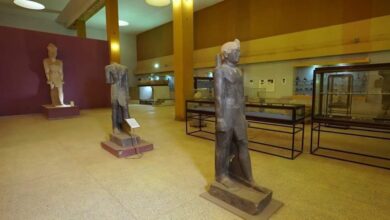
Sudan’s art centers are seen as embodiments of the nation’s heritage and reflections of its cultural identity. They are unique spaces that combine inspiration and entertainment. Despite years of neglect and deterioration, many of these centers managed to withstand crises and disasters—preserving their collections either fully or partially—until the outbreak of war in April 2023, which caused significant damage to many of these sites, some of which remain under threat.
In Khartoum, where the armed conflict began, theaters and art centers were destroyed, and musical instruments worth thousands of dollars were looted. Rare photographs of Arab and foreign actors and artists who had visited the capital were stolen, along with historic film reels and recordings of concerts and international festivals.
Vandalism and Looting
The headquarters of the Sudanese Musicians Union in Omdurman was vandalized and looted by armed groups who stole musical instruments, scattered the personal files and documents of artists and musicians, and destroyed furniture in the rehearsal hall, storage rooms, and attached cafeteria.
Various cultural sites suffered major damage, including the National Theater, Youth Centers in Omdurman, the “Ahalina” group, the Department of Folk Arts, and the Khidr Bashir, Al-Buq’a, and Nile Theaters, as well as several art centers in Khartoum. Stolen items included expensive musical instruments and rare photographs, such as one of Egyptian singer Umm Kulthum wearing a Sudanese “thobe,” as well as photos of American jazz bands and international theater stars. Historical and rare film reels were looted from the Omdurman Cultural Center.
Destruction and Fire
Daffa Allah El-Haj Ali Mustafa, founder and director of the Sudanese Traditional Music Center, stated that “the war contributed to the destruction of unique cultural heritage, including art centers, cultural institutions, and museums, which represent the literary, social, and artistic legacy of the Sudanese nation. If lost, future generations will be deprived of irreplaceable knowledge and cultural treasures.”
He added, “The Traditional Music Center, established in 1997, is the only institution in the country dedicated to traditional music. It operates six branches across various states, targeting practitioners of traditional music, individuals and groups interested in heritage, and aims to introduce Sudanese music to the world.”
Mustafa explained that the center suffered significant destruction, particularly its workshop, musical instrument museum, folk art accessories, heritage costumes, and its archives of books, research, and multimedia resources documenting traditional music and culture.
He noted that the center was completely burned and looted, with the Rapid Support Forces allegedly using the facility as a field kitchen, using wooden instruments as firewood. The National Theater, Omdurman Youth Center, the Ahalina group, and the Department of Folk Arts were also severely damaged.
Loss of the Cinema Museum
Ghassan Al-Balloula, director of the Omdurman Cultural Center, said the center was turned into a military barracks and priceless artworks were looted. Musical instruments, artists’ possessions, and the archive and museum of Sudanese cinema—including old cameras and the inflatable outdoor screen—were stolen.
He added that historic artworks that took years to create, including those by late artists, were destroyed, as well as cinema equipment and the center’s modern library. “A project that had been in the works for three years and consumed significant funding was destroyed. The war wiped out all rare efforts and precious belongings,” he said.
Theft of Artistic Icons’ Legacy
The homes of several prominent Sudanese artists were vandalized and looted. Social media platforms buzzed with images of stolen items belonging to the renowned Sudanese musician Mohammed Wardi, famously known as “Africa’s Number One Artist.” Strong evidence emerged indicating the complete looting and destruction of his artistic legacy.
Abdelwahab Wardi, the son of the late artist, said a friend saw an armed RSF member carrying his father’s oud (traditional stringed instrument), stolen from their home in the Al-Mamoura neighborhood in Khartoum. The friend offered to buy the oud, and the thief immediately accepted. Abdelwahab confirmed that the house was entirely looted and that his father’s priceless legacy—which is considered a national and global cultural treasure—was now lost.
Mohammed Wardi is regarded as one of the most influential and celebrated figures in Sudanese music, playing a major role in developing and promoting Sudanese music internationally.




